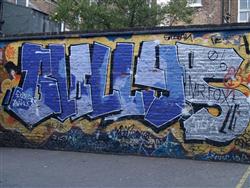
Learn to Understand the Criminal Mind
When you work in law prevention, enforcement or security; it helps a lot to understand the criminal mind.
Profiling - when a crime has been committed a criminal psychologist may be called in to act as a criminal profiler. Many of us have an idea of what a profiler does through TV, cinema and crime novels. Criminal profiling involves a psychologist using his/her understanding of human behaviour, pathology and motivation to try to create a psychological profile of the offender. Profiles can be very accurate. The profiler can use information from the scene of the crime to infer behavioural characteristics of the person who committed the crime. The profiler will also use their knowledge of the "typical offender" who commits this sort of crime and predict how the offender is likely to behave in the future and what their physical appearance may be. Profiling can be very exciting, but there are not a lot of serial offenders around fortunately, so there are limited job prospects and training prospects. Once an offender has been apprehended, there are more opportunities for psychological intervention. It has been used in investigative police work, interrogation and police line up.
Develop your understanding of criminal psychology and how psychology is used in law enforcement and crime prevention.
INTERESTED IN LEARNING ABOUT THE PSYCHOLOGY OF CRIME, THIS IS THE COURSE FOR YOU!
Suitable for anyone who works within criminal justice, such as police, social workers, court workers, solicitors, lawyers, probation workers or anyone with an interest in the psychology of crime.